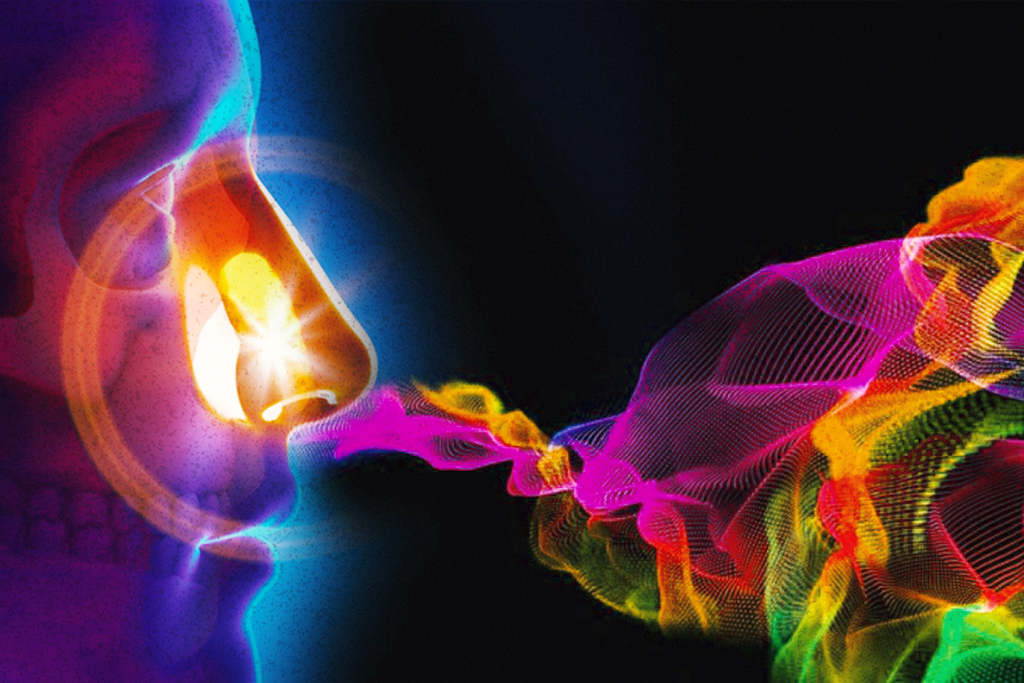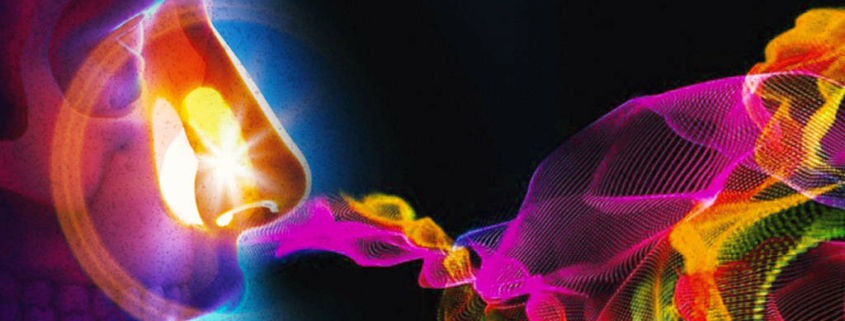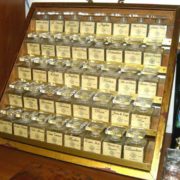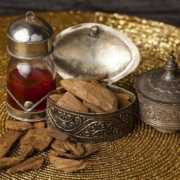Perfume and the Sense of Smell

According to the modern aspect of neuroscience, perfume, and the sense of smell seem closely intertwined due to the brain’s anatomy. Our sense of smell surpasses our other sensory experiences and stands out extraordinarily. For centuries, the art of perfumery has been harnessed by human cultures to improve moods, evoke memories, and even influence human behaviors. From invigorating fresh scents that can awaken our senses, to charming floral fragrances that can evoke elegance and romance, perfumes have an extraordinary power to impact our souls.
Ahead, we will embark on a journey to explore the incredible power of the sense of smell and dig into the glamorous world of perfumes. We will unlock the secrets behind the making of these masterpiece scents, explore the meticulous craftsmanship that goes into composing the perfect notes, and learn the science behind their lasting allure. So, let’s get started.
Table of contents
-
The importance of the sense of smell
-
The psychology of scent and how it affects our emotions and memories
-
The Art of Perfumery
-
Perfume as a form of self-expression
-
Choosing the right perfume for different occasions
-
The art of perfumery: from raw materials to the final product
-
The art of fragrance mixing
-
Conclusion: The Enduring Power of Perfume
The importance of the sense of smell
Although the sense of smell is least explored compared to other human sensory modalities, modern scientific studies have identified its many important functions. It influences the perception of tastes and helps determine what to eat and what to not, thus contributing to nutritional support and human well-being.
The sense of smell also affects social relationships by affecting memories and emotional conditions at various stages throughout life. It provides warning and protection for environmental hazards such as gas leaks and fires. By impacting all these factors, our sense of smell plays an important role in maintaining the overall quality of life.
The psychology of scent and how it affects our emotions and memories
The power of scent is not only involved in sniffing smell but also influences human psychology and behavior. Scent can influence human memories, emotions, moods, and even the perception of the surrounding environment.
The psychological effects of scents and their power to evoke emotions and memories are well-documented in modern research today. Studies suggest that the olfactory system is directly interconnected with the limbic system, the part of the brain responsible for processing and maintaining memories and emotions. Thus, certain scents have the ability to evoke memories and trigger nostalgic recollections.
This phenomenon is globally known as the “Proust effect”, named after the renowned French novelist Marcel Proust. In his novel, Marcel Proust described how a Madeleine cake dipped in tea powerfully triggered his childhood memories. The link between scents and memories has been extensively studied by the scientific community who have found certain scents can evoke emotions that can recollect forgotten memories of the past.

“As crumbs of the madeleine cake dropped into the infusion of tisane the aroma overwhelmed me with a strange sense of joy”
The art of perfumery
Perfumery or perfume-making is a fine art requiring sharp artistic sensibility with intricate craftsmanship. It stands on the idea of the “fragrance pyramid” which consists of 3 different layers of fragrances – the top note, the middle note or the heart note, and the base note.
The top note is the first scent we smell after wearing a perfume, mostly featuring fresh and light, such as floral and citrus notes. Then the middle or heart note emanates, emerging core scents of the perfume, often featuring more complex notes such as rose and jasmine. Finally, the base note comes out and lasts longer, providing a warm and rich foundation for the perfume like sandalwood and vanilla.
The art of perfumery requires a deep understanding of aroma molecules, including their characteristics, peculiarity, healing properties (of course, when it comes to natural perfumes only), and their interactions with each other along with a harsh artistic sensibility, allowing the perfumers to create a unique captivating fragrance composition. This process is painstaking as well as time-consuming. It takes months or even years to reach the desired perfume’s perfection.
Perfume as a form of self-expression
Perfume is not just a way to make you smell good, in reality, it’s more. Scent is a highly potential tool to reveal your self-expression. Your perfume can tell many things about your personality, including your moods, level of awareness, and innermost thoughts and feelings. For example, wearing an intoxicating scent may convey your sense of allure and confidence. Whereas, a subtle scent profile reflects a more introspective and refined personality.
Perfume can be used more exquisitely and mystically as a potent tool of self-expression. You can blend several notes (essential oils) and experiment to create your unique, personalized signature scent. Your custom-tailored scent can help you reflect the depth of your personality.
Here you can see our Perfume Making Kit to design your own custom-tailored perfume.
Choosing the right perfume for different occasions
Choosing the right perfume for different occasions might seem a daunting job for you. Although it is highly personal and subjective, certain scents are better suited for casual and intimate events, while others might be more suitable for a professional or formal setting. It typically depends on the mood and theme you want to create around you.
When selecting a perfume for occasions, you will need to consider the mood and atmosphere you want to create for the event. For example, if you are going to a romantic event, you may go with some scents that emerge with sensual and seductive notes like musk, rose, and jasmine. These fragrances work wonders for creating a bewitching and alluring aura that can perfectly complement the romantic ambiance. Or if you are going to celebratory or festive occasions, you may consider opting for vibrant and lively fragrances with gourmand and fruity notes. Light, floral notes with a little touch of spice might be a perfect choice for a professional business meeting. By matching your perfume with the occasion’s ambiance you can create a lasting impression and cohesive experience.
The art of perfumery: from raw materials to the final product
From selecting the finest raw materials to creating a final fragrance formulation, the art of perfumery depends on the careful and vigilant blending of different notes. This allows perfumers to create a mesmerizing, harmonious scent that can help evoke specific emotions, moods, and experiences.
This process is often painstaking and time-consuming and demands a deep understanding of fragrance raw materials – including the characteristics of the aroma molecules and their interactions with other compounds. In addition, it requires a harsh artistic susceptibility that helps the perfumers create a unique, everlasting perfume formulation.
The art of fragrance mixing
Mixing different scents in various ratios allows you to create your signature perfume that is uniquely yours. In fact, it’s a fun way to manifest your very own personality as well as an art that has been practiced for decades. But first, you will need to understand the fragrance families.
Understanding fragrance families
Before you start mixing fragrances, it’s important to understand fundamental fragrance families to recognize which fragrances complement each other. Common fragrance families include:
- Fresh – citrus, aquatic, and some green notes.
- Floral – lavender, tuberose, jasmine, and rose.
- Woody – vetiver, sandalwood, and cedarwood.
- Spicy – Nutmeg, Clove, Ginger
- Oriental – amber, vanilla, and spices such as cardamom, cinnamon, etc.
- Gourmand – edible notes such as vanilla, coffee, and chocolate.
The fundamentals of fragrance mixing
Start with your base note – it serves as the foundation of the entire blend. Pick scents that are depth and long-lasting. Oriental and woody fragrances work very well as base notes.
Choose a complementary heart note – when mixing fragrances, make sure your heart note complements your base note. You can consider the mood and ambiance you want to create through your perfume – fresh, sophisticated, or romantic. Fruity and floral fragrances are often used to add character and complexity.
Add your top note – the first scent that comes out from a perfume blend is the top note. It gives an introduction to your scent blend. Mix scents from the heaviest to the lightest. So, the top notes are light. Citrus and fresh fragrances are often used as top notes to give a bright and invigorating introduction.
However, don’t forget to keep notes so that you can recreate your signature scent over and over again.
Here you can see our Perfume Making Kit to design your own custom-tailored perfume.
Or if you prefer you can have your custom perfume composed by the expert hands of our perfumer AbdesSalaam Attar
Conclusion: The Enduring Power of Perfume
Perfumes have been an integral part of human culture for thousands of years. The smells have an incredible power to evoke human emotions and memories. Moreover, natural perfumes have been shown to have significant healing properties. Our sense of smell is closely interlinked with several mental functionalities. This is why perfumes have been used for various therapeutic purposes, especially to improve moods, memory, cognitive function, and overall emotional well-being.
To reap the best results and improve physical and mental well-being, you should definitely consider choosing only natural perfumes.
























Leave a Reply
Want to join the discussion?Feel free to contribute!